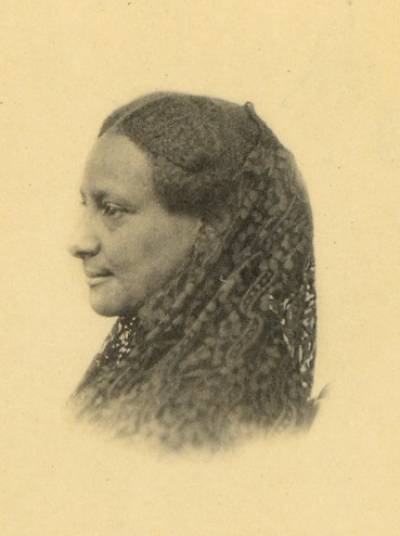Our Classics programmes open the door to careers in academia and beyond
Notable Classics alumna
Rosemary Manning (1911-1988)
Classics, 1933 Royal Holloway College
Rosemary Manning, author and activist, studied Classics at Royal Holloway, graduating in 1933. Her dark and acerbically funny books were crucial to the evolution of women’s writing in English, especially about sexuality and love of other women at a time when Lesbianism could scarcely be named in public (she bravely came out on TV at an advanced age, in 1980). Her most acclaimed books are The Chinese Garden (1962), Time and a Time (1971), Man on a Tower (1965) and her intensely witty autobiography A Corridor of Mirrors (1987).

Richmal Crompton (1890-1969)
Classics, 1914 Royal Holloway College
Richmal Crompton (1890-1969) writer of books, mainly for children, and inventor of William Brown, the anarchic hero of the phenomenally successful ‘Just William’ stories.
Over 50 years Richmal published 39 collections of stories, which sold over 12 million copies in the United Kingdom and were translated into nine languages. They have been adapted for films, stage-plays, and BBC radio and television series. In 2010 fellow alumnus Simon Nye adapted the stories for a new television version.
She came on a Founder’s Scholarship from Bury, Lancashire to read Classics at RHUL 100 years ago in 1911. She was a committed suffragette. There have been more than ten million William books sold, and many films, TV and radio series. William himself was not very good at Latin (see below), but had respect for people who were! Richmal saw her real work as writing adult fiction and she wrote 41 novels for adults and published nine collections of short stories. Their focus was generally Edwardian middle-class family and social life, dwelling on the constraints that they place on individuals while also nurturing them. This is best seen in her depiction of children as puzzled onlookers of society's ways. Nevertheless, the children, particularly William and his friends, almost always emerge triumphant.
Just William (1922)
Look at this hole!”
“Oh, that!” said William, looking at it.
“I don’t know why you go through your stockings like this.”
“P’raps it’s Latin,” said William, after a moment’s thought. Mrs. Brown considered this explanation in silence.
“How do you mean, Latin?” she said at last.
“Well,” explained William, “you see all this Latin I’ve got to learn mus’ make my brain jolly heavy, an’-well, you carry your brain on your feet, don’t you, same as the rest of your body, an’, if I stopped learnin’ Latin, my brain wouldn’t be as heavy as what it is now, an’-well, I shouldn’t go through my stockings so much. Can I stop learnin’ Latin?”
“No, dear,” said Mrs. Brown, “and don’t talk such nonsense.”
William sighed. He hadn’t really hoped for anything else. Between himself and the Latin master lay a long and bitter enmity. He had tried various ruses to induce his father and mother to let him stop learning Latin but none of them had worked. There was another silence. William, having polished off a fairly satisfying tea, was now turning his thoughts
to the chief business of the day, and that was to obtain the two shillings for his entrance fee into the tramp profession. He decided to try direct methods first.
“Will you give me two shillings, please, Mother?” he said.

Frances Stevenson (1888-1972)
Classics, 1910 Royal Holloway College
Frances Stevenson was a political secretary and an influence on Prime Minister David Lloyd George. She studied Classics at Clapham High School and Royal Holloway, where she graduated 101 years ago in 1910. She was a passionate suffragette. She (scandalously) became Lloyd George’s mistress and secretary in 1913. Her impact on him and contribution to political life in Britain were enormous.

Dame Ivy Compton-Burnett DBE (1884-1969)
Classical Studies, 1906 Royal Holloway College
Dame Ivy Compton-Burnett developed a distinct form of novel set almost entirely in dialogue. Her work typically dissects personal relationships in the middle-class Edwardian household.
Ivy achieved her full stature with Brothers and Sisters (1929), about a wilful woman who inadvertently marries her half brother. The centre of Men and Wives (1931) has another determined woman, one whose tyranny drives her son to murder her. Murder again appears in More Women Than Men (1933), this time by a woman bent on keeping her nephew under her domination. In A House and Its Head (1935) the tyrant is a father.
Her first novel, Dolores, is set in a women's college and was influenced heavily by her time at Royal Holloway.

Sarah Parker Remond (1826-1894)
Latin and French, 1861 Bedford College
Sarah Parker Remond was a free-born African American radical, suffragist, anti-slavery activist and later, a physician. She moved to England in 1859 and, as a notable and effective abolitionist campaigner, was the first woman to lecture publicly against slavery in Britain. Eventually, she settled in London’s Holland Park where she became active in a range of radical social movements.
Remond studied Latin and French at Bedford College, which later became Royal Holloway and Bedford New College, before enrolling as a student nurse at London University College in 1865. After becoming a British citizen in 1865, she relocated to Italy in 1866 and took the habilitation examination to become an obstetrician in 1868. Remond was not only a dynamic political voice against racial hierarchy and gender inequality but also a woman of science and medicine. Her life reveals an interesting history of the ways in which the pursuit of civil and political rights and citizenship by black people have been connected to the acquisition of rights and recognition by women.





















